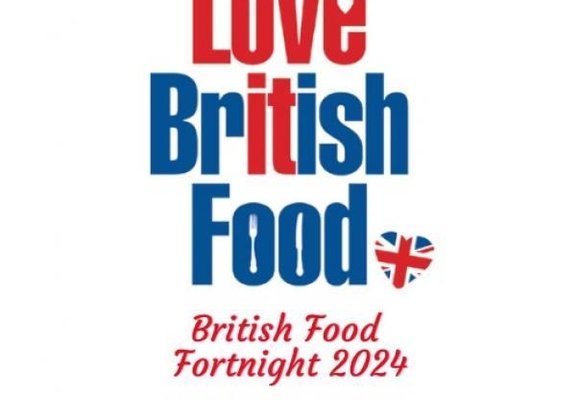A dedicated month of action, Stand Up For Food, is underway spearheaded by the resource efficiency agency WRAP as part of its Guardians of Grub campaign. It is supported by the Government’s Food Surplus & Waste Champion Ben Elliot, well-known chefs including Hugh Fearnley-Whittingstall, Skye Gyngell, Adam Handling, Ken Hom, Melissa Hemsley, Anna Jones and Thomasina Miers and major businesses and trade bodies.
During September, the UK’s busiest bars, pubs, restaurants, hotels, quick service outlets, cafes and catering companies will make sure they Target, Measure and Act on food waste. From street food to Michelin star, the Guardians of Grub’s influence stretches the length and breadth of Britain encompassing every division of the businesses involved. From kitchen staff to management, all will ensure food waste prevention is front of mind and that they measure and minimise food wastage in their own operations.
Companies on board include Apetito, Bartlett Mitchell, BaxterStorey, Bidfood, Castell Howell, Casual Dining Group, Compass Group UK & Ireland , Deliveroo, Greene King, Lexington Catering, OCS, Olympia London, Pizza Hut Restaurants and Unilever Food Solutions.
Sector bodies and influencers include the British Beer and Pub Association, British Institute of Innkeeping, British Water, the BSI Group (British Standards Institution), the Chartered Institute of Environmental Health, the Institute of Hospitality, LACA, the Royal Academy of Culinary Arts, the Sustainable Restaurant Association, Too Good To Go, TUCO, UKHospitality, Westminster Kingsway College and Winnow.
David Nuttall, Harper Adams University and TUCO, “This September in support of Stand Up For Food month of action, Harper Adams University is continuing to closely track and share the amount of food wasted from plates in our dining rooms. Using the Guardians of Grub resources to do this makes complete sense, and helps to measure the changes which we can share with our students. The fact is, when people are confronted with the stark reality of food waste presented in a way that can be easily understood they are shocked, and want to do something about it. We convert our waste data into equivalent cows and tractors as a relevant talking point for students. We all have a role to play and we encourage all University caterers to take action and Stand Up For Food.”
Food Surplus and Waste Champion, Ben Elliot “It’s truly time to Stand Up For Food – food need not be wasted. This brilliant month of action, led by WRAP, empowers every food business, ensuring that food waste is taken off the menu. To the gallant Guardians, I recommend the brilliant resources provided by WRAP, created to help tackle this very important issue.”
Ken Hom, OBE, “We can all help save the planet and our future by starting with ourselves in the industry. We who prepare and serve food should do everything possible to adjust our wasteful habit of discarding perfectly good food. Before throwing anything away, think about how it can be used. Garlic peels, for example, are wonderful in a roast or stock. Leftover vegetables can be used to make a delicious savoury soup. Food is as precious as our planet and if we work together as Guardians of Grub, we will be able to make the world a better place, without food waste.”
Adam Handling, Chef Owner of Adam Handling Restaurant Group, “I’m thrilled to be supporting the #StandUpForFood Campaign as one of its Guardians of Grub ambassadors. Reducing waste in the industry is something I’ve always cared passionately about, and it underpins every one of my restaurants. Everyone in the group shares a passion for minimising waste, and our staff training programmes make sure that every member of the team is trained in sustainable practices. That’s why it’s so important campaigns like this exist so we can help transform the way this industry operates. It’s staggering to think that over one million tonnes of food is thrown away each year by the hospitality and food sectors, the majority of which can be eaten if we just use a little imagination! At my restaurants, we’re always looking for ways to prevent food waste; for example, we have our own food lab installed where we love to ferment and pickle ingredients like tomatoes or cabbage, so that they can be used all-year round as opposed to being needlessly thrown away when they go out of season or over-ripen.”
Melissa Hemsley, cook, author and sustainability columnist Vogue "I would encourage all food lovers to take part in the Guardians of Grub #StandUpForFood month to help to make a real collective difference to waste less food. If we can rethink *waste* as ingredients in their own right, get creative with menus, and help inspire diners to try to cook something at home that they might otherwise have thrown away, then we all benefit massively. It feels good to play our part in the food waste fight, to help to make a difference, to respect and reconnect to the food we eat and to our farmers and local community. I'm excited to share food waste tips with other Guardians of Grub this month, there's always something else to learn and a clever swap or positive habit to take on.
Anna Jones, cook and author of A Modern Way to Eat "Reducing food waste is one of the most impactful things we can do to help the planet. At home and in restaurant kitchens we need waste champions - people who remind us to respect food, to use up every last bit."
Peter Maddox, Director WRAP said “Food waste usually goes unnoticed in relation to climate change, but the reality is that we won’t stop temperatures rising if we fail to address the problems within the food system. We see no place for food waste on any UK menu, and I’m confident Stand Up For Food will be a great success, and an important moment in the war on food waste. This is the largest, most inclusive campaign we’ve ever undertaken with the hospitality and food service sector and key has been recruiting the Guardians to make this happen in their own businesses, and arming those people with the right resources to help. And while we focus attention on one industry in September, it’s a moment too when we can all think about how we all contribute to food waste, and what we can do to limit that – it’s food for thought.”
During Stand Up For Food month, kitchens and staff will use a range of free resources produced by WRAP that share best practice on reducing food waste. These include guidance and resources to help measure and review food thrown away. The priority for September is food waste measuring, after which it will be easy for businesses to pinpoint where and why food waste occurs in their operations, and work out how to stop good food ending up in the bin. At its heart, the campaign is about helping businesses make simple, low-cost changes to how food is procured, prepared and presented that reduce the amount needlessly thrown away. Case studies outlining the savings made are being published on the Guardians of Grub website*.
While Stand Up For Food month is all about business action, consumers may see subtle changes when they dine out in future as a result. Plate waste, the uneaten food returned to kitchens, currently accounts for nearly one third of all food waste from the sector with commonly wasted items including potatoes, bread, pasta, rice, salads and garnishes. These leftovers can be examined through menu reviews to investigate ways to limit the wastage of these popular dishes**.
Guardians of Grub are also at work within the catering sector to tackle food waste at public venues. Olympia London has its own Guardians of Grub working with its catering partners across the entire estate.
*The hospitality and food service sector can use the Guardians of Grub materials and standalone spreadsheet. The tools are compatible with Unilever Food Solutions’ Wise Up on Waste tool www.wiseuponwaste.com, and are free to use.
**For example, The Airport, a busy food-led pub at Manchester Airport owned by Robinsons Brewery, measured food waste from preparation, spoilage and plates and based on the insights gained made changes resulting in a 16% reduction in food waste, saving an estimated £2,950 in food purchase costs. It found coleslaw and sauces were often returned to the kitchen untouched. As a result, it began to offer coleslaw and sauces to customers rather than serving them automatically. Now, instead of using eight tubs of coleslaw a day the pub uses just one, helping to reduce the amount wasted. The Crieff Hydro Hotel reviewed how it offered toast and jam to customers based on a review of bread waste, making savings of £10,000 by introducing simple changes such as toast on demand, at no additional cost. The Balloon Bar at the University of Bristol removed salad from the buffet due to high wastage levels, but retained it on the menu as an option. Other case studies can be found at https://guardiansofgrub.com
If the subject raised in this article is of interest to you, we also discuss it in some other parts of the website.











